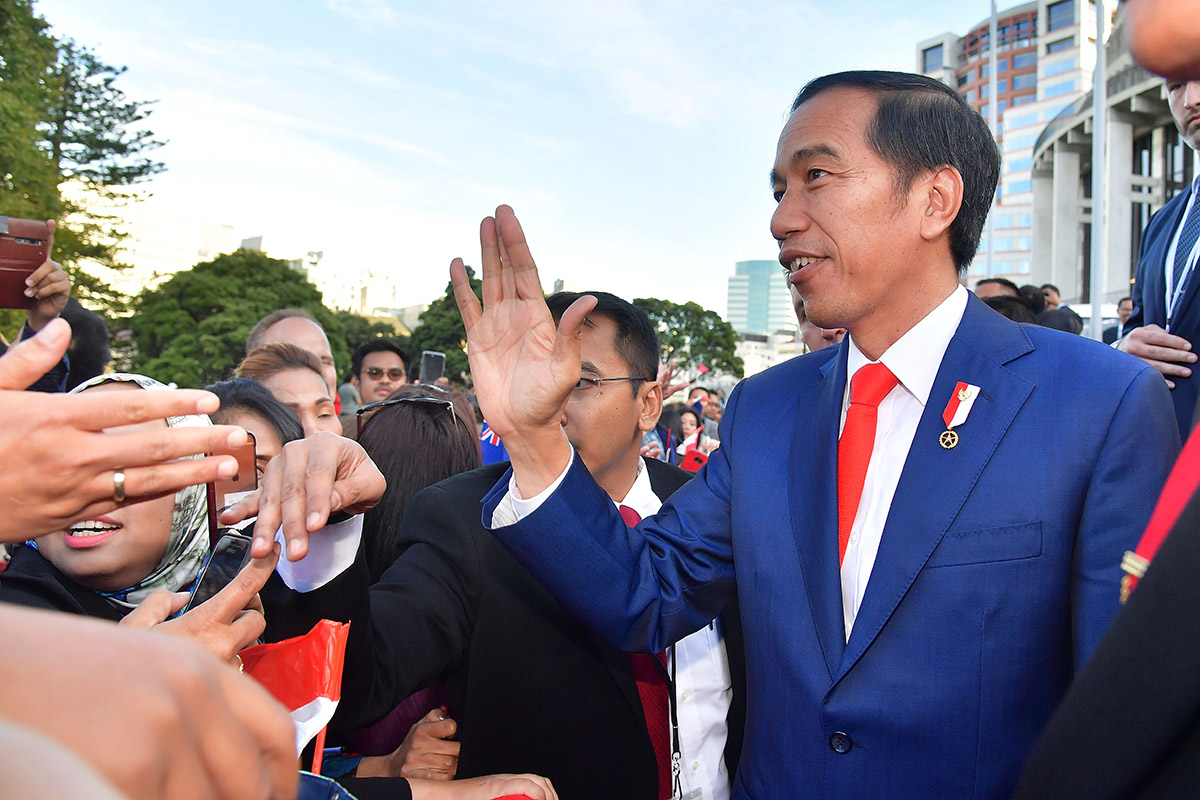When former president of the United States (US), Barack Obama mooted the idea of the Trans Pacific Partnership (TPP) to Indonesia’s president, Joko Widodo in 2015, the latter opted for a ‘wait and see’ approach. He expressed his opinion to the architect of the “Pivot to Asia” that the largest economy in Southeast Asia will only join upon the ratification and implementation of the deal by all its current members.
With Donald Trump’s rescindment of the trade deal upon replacing Obama, Jakarta had abandoned all hope for the trade deal. Instead, Widodo’s administration chose to focus on the completion of another mega trade agreement, the Regional Comprehensive Economic Partnership (RCEP) consisting of all 10 members of the Association of Southeast Asian Nations (ASEAN) and its free trade partners, South Korea, Australia, New Zealand, India, Japan and China.
However, Indonesia’s interest to join the TPP-11 also known as the Comprehensive and Progressive Agreement for Trans-Pacific Partnership (CPTPP) has been piqued yet again. In a special ASEAN Summit held in Sydney last month, Australian prime minister, Malcolm Turnbull alluded to Indonesia joining the trade deal but held that there was no rush in forcing Jakarta into talks.
In an interview with American news cable channel, CNBC, Indonesia’s finance minister, Sri Mulyani Indrawati indicated that her country may join the CPTPP but not before certain structural issues with the agreement were first addressed. As the Indonesian government aims to bolster its almost trillion-dollar economy, the government is readily looking for international opportunities to expand trade and connectivity ties as well as to invest in human capital and in the ease of doing business.

Jakarta’s intention to join the CPTPP will be of immense benefit to the trade deal. For now, the US is out of the picture although Trump teased a return to the trade pact before immediately backing down from that stance last week. If in the past, US absence was a reason to not join the TPP, given the current global trade conditions, now, it may very well be the reason Indonesia should actively pursue joining the deal.
Trump’s protectionist undertones in his conduct of trade policies are not jiving well with global leaders who have long supported global trade internationalism. His recent actions including slapping tariffs and threatening trade wars have led investors away from the US economy.
Even with a run-up in domestic US stocks, large corporate tax cuts, relaxed regulations and a rise in company earnings, US companies are still valued less now than before Trump’s election. Besides that, the cost to borrow for the US relative to other governments has skyrocketed and the dollar’s share of global currency reserves has hit a four-year low according to recent data by the International Monetary Fund (IMF). In essence, as Trump remains isolated in his cube of economic protectionism, the world around him is attempting to chug along with or without (in this case, without) the stewardship of the US in the global economic order.
As the largest economy and market in Southeast Asia, the CPTPP could stand to benefit as well from Indonesia’s inclusion. If included, Indonesia would increase the cumulative Gross Domestic Product (GDP) of the trade deal by 9.2 percent from US$10.1 trillion to US$11 trillion. With a GDP of US$932.2 billion it would be the 5th largest economy amongst the TPP-12. Besides that, with a 261.1 million strong population – the fourth most populous country in the world – the market size of the CPTPP will increase by 52 percent from 501.2 million to 762.12 million.
Indonesia’s trade minister, Enggartiasto Lukita last week, urged members of ASEAN that have yet to join the CPTPP (Thailand, the Philippines, Myanmar, Indonesia, Lao PDR and Cambodia) to do so and ensure that the ASEAN bloc can collectively negotiate the trade agreement. He also added that the trade deal would be discussed in the upcoming ASEAN Summit in Singapore.
These are telling signs that Indonesia is preparing to face the uncharted waters of international trade as it is today. With the US arduously protectionist on one side and the world against it on the other, it is only fitting for ASEAN’s primus inter pares to call for the association to unite as one for the sake of economic development.
